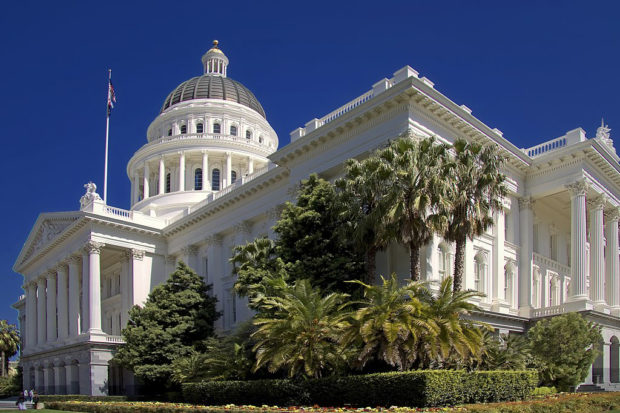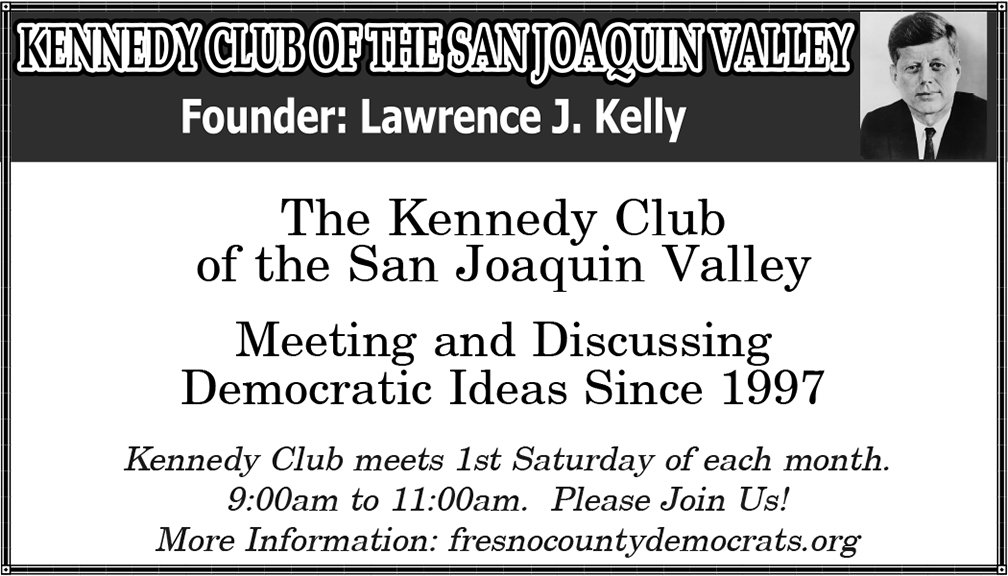
By Kevin Hall
“The popular idea of cutting our emissions in half in 10 years only gives us a 50% chance of staying below 1.5 degrees [Celsius] and the risk of setting off irreversible chain reactions beyond human control.”—Greta Thunberg, Sept. 23, 2019
A trio of deadly interests—fossil Democrats, Big Oil & Methane, and organized labor—worked together to defeat human health protections in our state capital last month.
As Sacramento-based journalist Dan Bacher reported in Daily Kos, “Construction trade unions have joined [the] Western States Petroleum Association (WSPA) in an alliance, Common Ground, to defeat AB 345 and other measures to impose any further restrictions on the oil industry in California. Common Ground describes itself as ‘part of a joint labor management committee between the State Building and Construction Trades Council of California and the Western States Petroleum Association.’” The bill died 4-5 in a committee controlled by Democrats.
Which leads me to wonder whether labor leader Robbie Hunter is determined to see the planet destroyed or merely trying to ignore its collapse? Neither is likely true, I’m sure.
Perhaps that’s not a fair question to put to California’s eighth most politically powerful person, as ranked recently by Capitol Weekly. Wielding the power drawn from strength in numbers, Hunter leads—and answers to—the leaders of the Building Trades Council, an amalgam of 450,000 unionized workers. The Council only seems intent on burying your children’s health and future by partnering with Big Oil & Methane to kill public health legislation.

The bill would have mandated much-needed safety setbacks of 2,500 feet between people and toxin-emitting oil and gas wells. The bill passed the Assembly despite nays from Fresno’s ironically titled Dr. Joaquin Arambula, Kern County’s Rudy “Oil Can” Salas and every Trump Party (T.P., formerly known as Republican) member. It died in the Senate Committee on Natural Resources and Water, where T.P. science deniers were joined in opposition by Democrats Anna Caballero, Ben Hueso and Bob Hertzberg, the Majority Leader.
The industry claims too many oil field workers would lose their jobs, while advocates argue so many vulnerable residents are already losing their lives. The jobs are held by electricians, ironworkers and pipefitters. The people dying are poor and working class, mostly of color in communities overburdened with pollution, disinvestment and racist policing.
Rusty Hicks, Hunter’s former counterpart at the State Federation of Labor, now chairs the California Democratic Party. Both men are presumably focused on preventing the devastation wrought on families when good jobs are lost, even when other families must face the devastation caused by cancer and other afflictions beyond the fenceline of those job sites.

After defeating progressive Kimberly Ellis in a heated convention vote in June 2019, Hicks highlighted activist Susan Burton a few months later at the party’s November gathering. He gave away copies of her deeply moving autobiography, Becoming Ms. Burton: From Prison to Recovery to Leading the Fight for Incarcerated Women.
Burton details how the gradual deindustrialization of Long Beach following World War II ravaged the city’s Black middle class, leading to widespread poverty with multigenerational impacts. The insurmountable hardships placed on women inside and exiting prison became Burton’s direct experience and her life’s work. In 1998, she founded—and still heads—A New Way of Life, a reentry service for women inmates that began in her apartment and recently opened its ninth “Safe Home” in South Los Angeles.
Burton’s story and work are located in what just-transition advocates affiliated with the Climate Justice Alliance define as “sacrifice zones.” These are the frontline neighborhoods and indigenous communities bearing the environmental and economic brunt of our unrelenting consumer society’s extraction, production, transportation and waste impacts.
Hicks intuitively went to the heart of the issue with Burton’s speech, largely, but do he or Hunter have any ideas on how to avoid repeating this never-ending pattern? It’s difficult to imagine creating a just transition for energy workers when their leadership has linked their fate to that of the most damaging industry in history.
And are environmental justice advocates violating the principles of a just transition with AB 345? California’s oil and gas workers are in the same vulnerable position their 1950s Long Beach and contemporary coal mining counterparts once were: frontline workers in a dying industry. But it’s difficult to imagine a just transition that doesn’t involve the affected workers, yet union leaders are currently on the same side of the table as the worst bosses in history.
In the middle of the jobs versus lives tension were Democrats. The pressure grew so great that in the bill’s final committee hearing Hertzberg verbally attacked advocate Katie Valenzuela, political and policy director for California Environmental Justice Alliance Action, from the dais. Though he later offered an apology of sorts, Hertzberg’s depiction of advocates’ efforts as a “publicity stunt” was an intentional public slapping, designed to intimidate others.
Hertzberg has ambitions for statewide office; he knows this is the wrong time to be seen as a close friend to oil and methane and hates being held accountable. Yet he is compelled by higher ambitions—and fears of an oil-backed fossil Democratic challenger in his next race—to side with the climate change monsters at WSPA, employer to Fresno’s own special disgrace, former State Assembly member turned oil lobbyist, fossil-Democrat Henry T. Perea.
Residents of the San Joaquin Valley must live with the harms caused by such warped politics and politicians. In our 25,000-square-mile region of more than 4 million people, fewer than 5,000 families garner 90% of all farm income; a handful of corporate oil interests have fouled much of the Valley’s lower third; conservatives dominate the political landscape; and a disinterested, white-collar, college-educated caste serves the interests of them all, including some in well-paid union staff jobs.
Alongside ag and oil, our Valley’s hallmarks are extreme poverty and pollution, as are the countless lives shortened by exposure to toxic emissions imbuing our air, water, soil and food with unnatural, deadly ingredients.
We are not a second Appalachia. We’re the San Joaquin Valley, breadbasket of the wealthiest state in the union, and an essential part of a sustainable California, if there is to be one. Our common ground efforts must be focused on an immediate future filled with unprecedented actions to end fossil fuel dependency, not one polluted with hydrocarbon politics or money.
*****
Kevin Hall hosts Climate Politics on KFCF 88.1 FM every second and fourth Friday, 5 p.m.–6 p.m. He tweets as @airfrezno and @sjvalleyclimate, coordinates an informal network of climate activists at www.valleyclimate.org and can be contacted at sjvalleyclimate@gmail.com for presentations and information.


[…] in this community either, fatally compromised as they are by solidarity with Big Oil and Methane, as reported here last […]